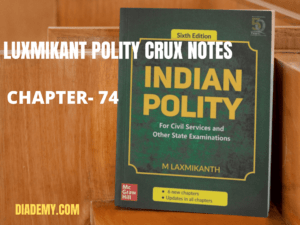
Voting Behaviour
| MEANING OF VOTING BEHAVIOUR | Voting behaviour is also known as electoral behaviour. It is a form of political behaviour. It implies the behaviour of voters in the context of elections in a democratic political system. |
| SIGNIFICANCE OF VOTING BEHAVIOUR | The study of voting behaviour is significant for the following reasons:
1. It helps in comprehending the process of political socialisation. 2. It helps in examining the internalisation of democracy. 3. Emphasises the real impact of revolutionary ballot box. 4. Enables to throw light on how far electoral parties continue or break with the past. 5. Helps to measure whether it is modern or primordial in the context of political development
According to N.G.S. Kini, voting behaviour can be regarded as: 1. A mode of legitimising democratic rule; 2. Instancing an act of decision-making; 3. A direct relation of the individual citizens to the formal government. |
| DETERMINANTS OF VOTING BEHAVIOUR | Caste, Religion, Language, Region, Money, Performance of the Ruling Party, Party Identification, Ideology, |
| ROLE OF MEDIA IN ELECTIONS AND VOTING BEHAVIOUR |
1. InformationDisseminationEvery minute detail to public spread awareness.Disclose mal practice, hate speech etc. 2. Enforcement of MCC and other Laws It can expose violations of the MCC such as divisive or hate speeches or unverified allegations in campaigns aimed at influencing electors. Violations reported by media are followed up by the Election Commission as in dealing with formal complaints. The media can sensitise the political functionaries. 3. Compliance to Election Laws The Election Commission does not regulate media. It has the responsibility to enforce the provisions of law or Court directions. These laws are mentioned below: a) Section 126A Act, 1951: It stops exit poll and dissemination of their results during the mentioned period.
b) Section 126 Act, 1951: It prohibits displaying any election matter by mean of cinematograph, television or other similar apparatus.
c) Section 127A Act, 1951: The printing and publication of election pamphlets, posters, etc. is governed by its provisions.
d) Section 171H of the Indian Penal Code: It prohibits incurring of expenditure on, inter alia, advertisement without the authority of the contesting candidate.
4. Voter Education There is scope for a much larger and committed partnership from media in the crucial area of voter awareness and participation. This is one of the most promising areas of the Election Commission–media relationship. There is a gap between what the voters ‘should know’ and what they ‘actually know’ in important areas like registration, EPIC/ identity proofs, Polling Station location, use of EVMs, timings of the poll. Commission expects that Media should volunteer to take up this task of informing, motivating and facilitating citizens. 5. Responsibility of Government Media In broadcast of election related news, Public Service Broadcasters are expected to lead by example in terms of neutrality and objectivity, and adhere to various guidelines including their own. |
Get all essential Crux notes by clicking here https://diademy.com/product/staticcrux/